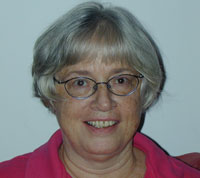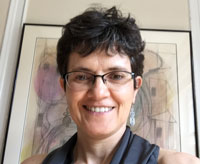By Neil Altman (USA)
During the recent IARPP conference in Toronto, a panel comprised of Elizabeth Hegeman (USA), Neil Altman (USA), and Cleonie White (USA) addressed the question of why psychoanalysis—and psychoanalysts—pay so little attention to the experience of nannies, the nannies’ own children and families, and the children and families for whom they work. There were three papers and a discussion provided by Melanie Suchet (USA).
The first paper, written by Elizabeth Hegeman, PhD, from the William Alanson White Institute in New York City, was entitled What Should I Do When They Call Me Mom? Hegeman emphasized the following points:
- Normative unconscious processes replicate the power relationships in society, including splits around dominance and submission, which get played out in childcare with important consequences for development.
- Family attachment patterns, rather than being one-to-one or maternal-infant as the theory assumes, are actually more multiple and fluid, with tremendous individual variation in how porous or exclusive a particular family system is.
- Caregiving systems are loaded with unconscious meaning to which we need to attend more closely. For example, the commodification of the caregiver relationship may itself be a parental defense against the parental reaction to the helplessness of infants and children. Parents may have the illusion that they can control the nanny and thus feel they have more control.
The second paper was presented by Neil Altman, Ph.D., also from the William Alanson White Institute. His paper was entitled The Invisible Nanny. Altman emphasized the anxiety-laden feelings circulating among nannies, parents, and children, and the larger societal power relations that organize these relationships. He pointed out that many psychoanalysts employ nannies to care for their children. Personally, many analysts feel they are at the epicenter of the love, hate, and guilt involved when nannies care for one’s children. The invisibility of nannies is evident in a pervasive inattention, on the part of analysts, to the emotional experience of nannies, particularly concerning their own left-behind children and families. This inattention is also seen in the neglect of nannies’ basic needs, reflected in poor pay and lack of health insurance. Analysts as a group pay exquisite attention to the experiences of young children, yet largely ignore the emotionally crucial impact of nanny-child-family relationships. Inattention to the larger social context further predisposes analysts to neglect the impact of the power imbalance between nannies and the people for whom they work, with profound consequences for emotional interactions.
The third paper was written by Cleonie White, PhD, from the William Alanson White Institute. Her paper was entitled Barrels of Goods to Make Me Smile: But, Mommy, Who Tended My Wounds? White emphasized both the experience of nannies as immigrants who have left their own children behind and the experience of those children. The title of the paper captures vividly the way nannies try to provide something for the children they have left behind, in the form of barrels of toys. In a very powerful clinical example White conveyed the anger, shame, and guilt that can erupt when women who leave their own children to care for the children of other, more economically privileged, people, are reunited with their own children.
The discussion was provided by Melanie Suchet, PhD, from the New York University Postdoctoral Program in Psychotherapy and Psychoanalysis. In her discussion Suchet brought out the paradox in which nannies, occupying a socially subordinate position, coexist with their emotional centrality for the children they care for. She spoke movingly of her feelings about her own childhood nanny.
Neil Altman, PhD
275 Central Park West #13E
New York, NY 10024
USA
Email Neil Altman
 Elizabeth Hegeman, PhD
Elizabeth Hegeman, PhD
100 Riverside Drive, #10C
New York, NY 10024
USA
Email Elizabeth Hegeman
Cleonie White, PhD
6771 Yellowstone Blvd.
Forest Hills, NY 11375
USA
Email Cleonie White
 Melanie Suchet, PhD
Melanie Suchet, PhD
124 West 79th Street, Suite 1C
New York, NY 10024
USA
Email Melanie Suchet


